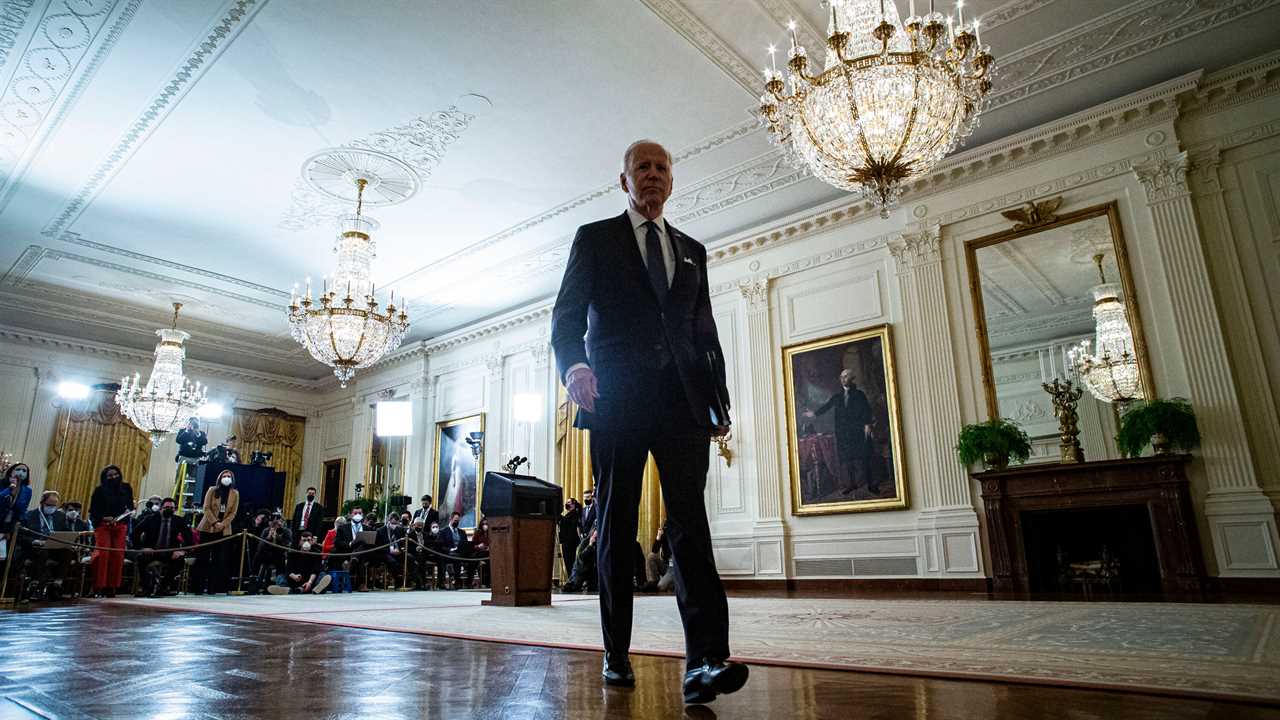
The United States intelligence agencies unearthed Russia’s war plans. They accurately assessed President Vladimir V. Putin’s intentions and, through strategic public releases of information, complicated his efforts to create a pretext to send his armed forces into Ukraine. They got the timing of his invasion right almost to the hour.The success of American intelligence in reading Mr. Putin and stripping away any element of surprise is one of the most striking developments of the crisis and has had substantial implications as the conflict has exploded into bloodshed.It was not enough in the end to deter Mr. Putin from carrying out the broad assault that got underway early on Thursday.But the depth and quality of the American intelligence strengthened President Biden’s hand in bringing the trans-Atlantic alliance into a unified front against Moscow. It provided time to prepare waves of sanctions and other steps to impose a cost on Russia, dispatch troops to bolster NATO allies and move Americans out of harm’s way.And after high-profile intelligence failures in Afghanistan, Iraq and other global crises over the past several decades, the accuracy of the intelligence gave the C.I.A. and the broader array of U.S. intelligence agencies new credibility at home and abroad.The result has been a remarkable four months of diplomacy, deterrence and American-led information warfare, including the last-ditch effort to disrupt Mr. Putin’s strategy by exposing it publicly. Unlike the withdrawal from Afghanistan last year, it was executed almost flawlessly. Even the Germans and other European nations highly dependent on Russian-supplied gas signed onto the playbook.Now, with the invasion underway, administration officials are considering how to continue the information war with Russia, highlight potential war crimes and push back on Moscow’s propaganda about its intentions in Ukraine, according to people familiar with the discussions.As the Biden administration released information about the Russian plans over the past few months, intelligence officials took pains to conceal how they had collected the material.Still, it was clear that the intelligence agencies relied on all of their assets: a rebuilt source network in Russia, government and commercial satellites tracking the movement of Russian troops, an improved ability to intercept communications, and even open-source material culled from Russian social media.Advances in cryptology and electronic-intercept technology over the last decade, helped by an ever-increasing reliance on computer networks and mobile communication around the world, have vastly increased the kinds of intelligence the United States and its allies seek. Even though Mr. Putin himself avoids using electronic devices, a modern army must communicate, and soldiers carry unsecured phones in their pockets, creating ample collection targets.American officials leaked material showing the doubts that Russia’s frontline commanders had about Moscow’s war plans, a demonstration of how closely Moscow’s military was being watched. Assessments of what Mr. Putin would do proved correct, even when many other experts guessed wrong.The United States found more innovative ways to use its intelligence as the crisis built. William J. Burns, the C.I.A. director, confronted the Russian government with its own war plans. Avril D. Haines, the director of national intelligence, shared secret intelligence with allied governments to build support for the American assessment. And the White House and State Department shared some declassified intelligence publicly to expose Mr. Putin’s plans for “false flag” operations and deny him the pretext he wanted to invade.ImageSmoke rising from an air defense base in the aftermath of an apparent Russian strike on Thursday in Mariupol, Ukraine.Credit...Evgeniy Maloletka/Associated PressThe intelligence disclosures may not be over now that the invasion has begun. The Biden administration has made clear it does not want to take on the job of publicly calling out Russian troop movements. But it may continue its information releases, as officials mull various options to hold Russia accountable for its actions in Ukraine, according to people familiar with the discussion.“The intelligence, from not only American but British and other sources, has been spot on,” said Senator Mark Warner, the Virginia Democrat who is the chairman of the Senate Intelligence Committee. While the intelligence agencies have been “out of their comfort zone” in releasing information, the disclosures have had an effect, he said.“What it’s done is not only thrown Putin’s plan’s slightly off, it’s also really helped solidify the NATO alliance,” Mr. Warner said.The administration,By: Julian E. Barnes and David E. Sanger
Title: Accurate U.S. intelligence did not stop Putin, but it gave Biden big advantages.
Sourced From: www.nytimes.com/2022/02/24/world/europe/intelligence-putin-biden-ukraine-leverage.html
Published Date: Thu, 24 Feb 2022 21:14:37 +0000
Read More
Did you miss our previous article...
https://badpoliticians.com/us-politics/capitol-hill-democrats-honor-judge-jackson-while-republicans-promise-a-respectful-review
 UK PoliticsWorld PoliticsVideosPrivacy PolicyTerms And Conditions
UK PoliticsWorld PoliticsVideosPrivacy PolicyTerms And Conditions
